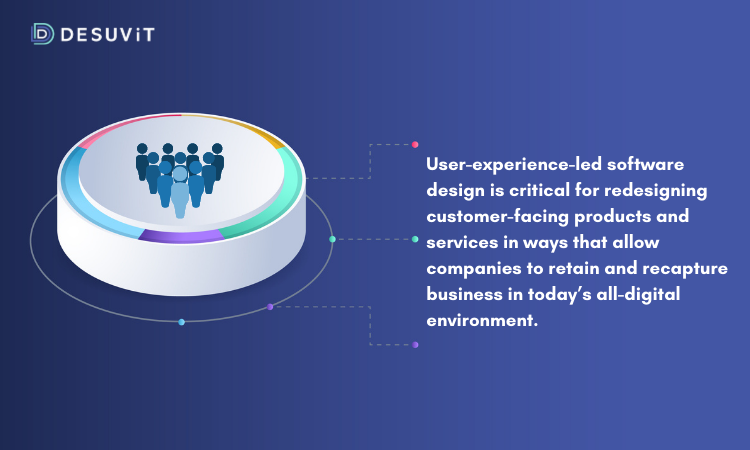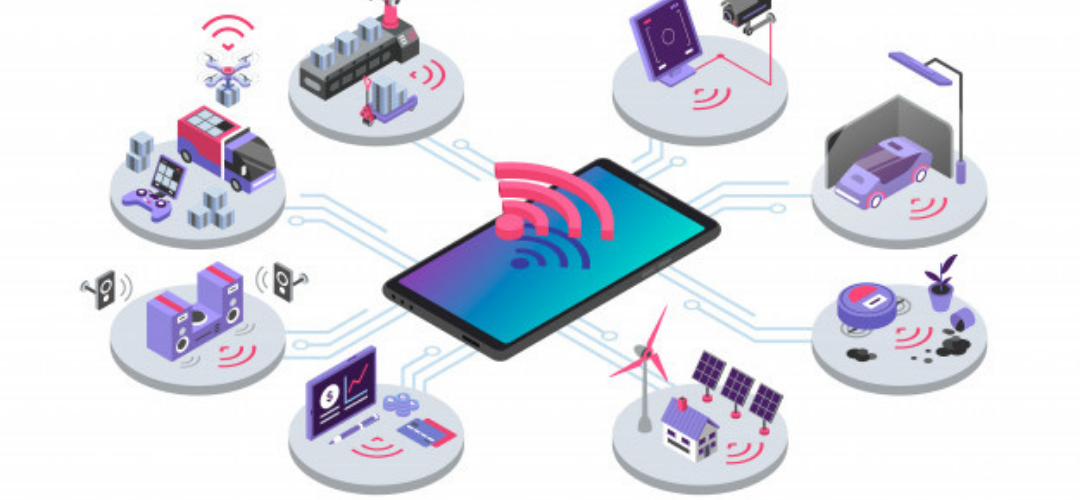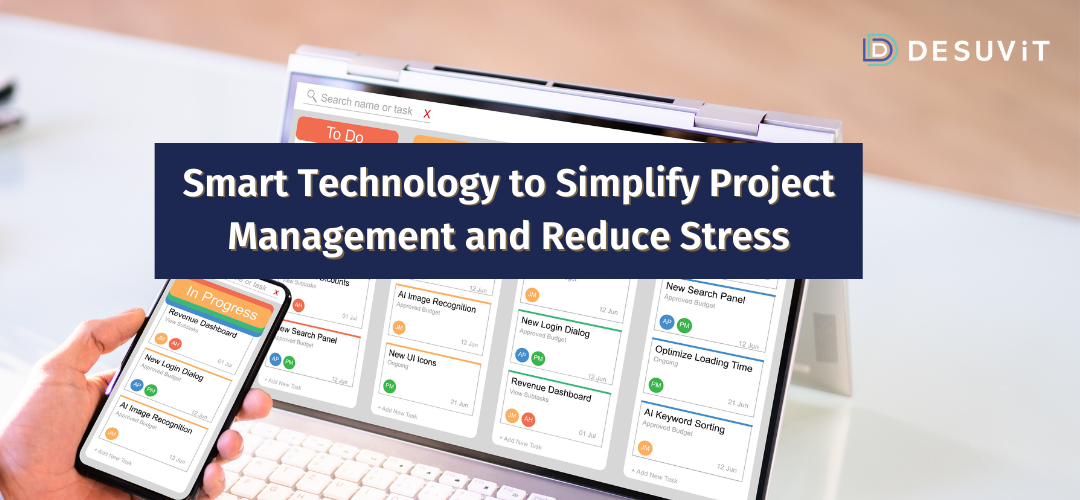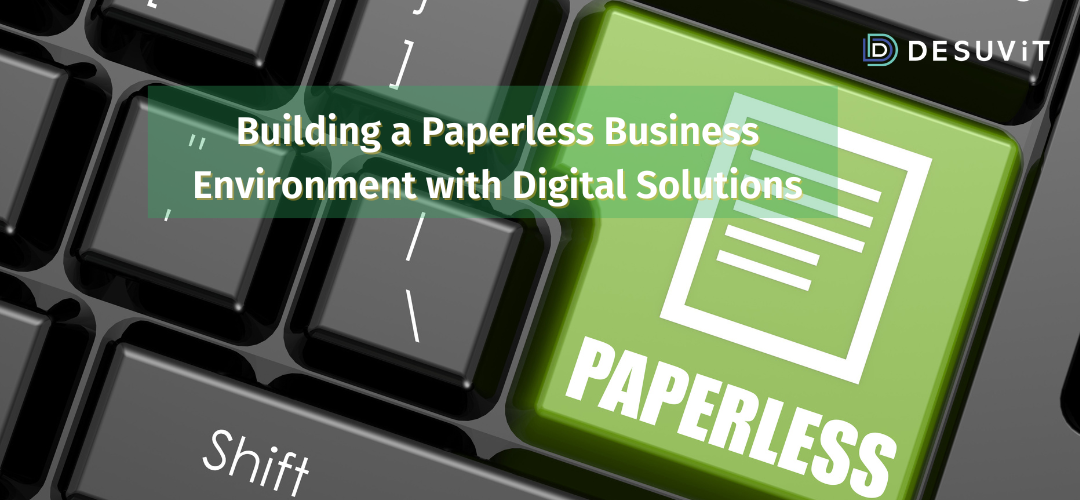Technology is advancing at an exponential pace, leading to a constant need for modification in daily practices. Be it as simple as paying from a cell phone or as challenging as developing software. Innovative technology facilitates software development and solutions to everyday problems & requirements.
From the Internet of Things to Artificial Intelligence and Blockchain to Big Data Analytics, the Software Development industry is brimming with innovative technologies.
Software development plays a pivotal role in the growth of various sectors and eases the management of it. There are different software available to cater to all the business needs for streamlining communication, HR management, Accounting, Marketing integration, CRM, and sales management.
The boom of software development in the near future is evident, especially in a world of remote work and facilities. However, it requires constant modification and innovation to facilitate growth.
The IT spending on enterprise software is anticipated to reach $517 billion in 2021 as per the recent report by Statista, which is 10.8% higher than 2020. Therefore, you can expect to come across a host of software types specially curated to meet the present day in demand.
Still, what is the current day demand, and how can software development aid it? Blend innovative technology with software development, and you have all your answers.
In this blog, you will get an insight into x innovative technologies that have revolutionized the software development industry. But before going ahead, here is why software development does require innovation!
Need for Innovation in Software Development
Software development is an integral part of almost all types of businesses, services, government agencies, and more. Though it significantly eases the workflow, it also brings up the need for constant change.
Innovation is quintessential in software development, from gaining the upper hand among your competitors to business opportunities and enhanced consumer service.
Competitive Advantage:
One of the prime advantages of innovating your company’s software is getting the upper hand over your competitors. When you develop better products and services, your customers will pick you over your competing firms. Moreover, keeping your business operations in line with the changing market trends will help you cater to the customer’s needs effortlessly.
Business Operations:
While software development innovation will help you serve better, your business can also operate relatively seamless. From managing employee salary, leaves, etc., to maintain receipts, cash flows, and more, advanced software is always a win-win situation.
Daily Activities:
Innovation in software development not only helps businesses but an individual too. Software innovation has already helped in easing out transactions both to business entities and people. When the old innovation techniques were so useful, you can only anticipate what software development innovation has in store for the future.
Productivity:
Are you tired of typing the never-ending codes? Innovation has a solution for you too. The cutting-edge innovation in software such as the C# 9.0 has dramatically modified how you will go about coding. With its innovative version, you need to type relatively less, allowing you to work faster and aid work productivity.
Ingenious Technologies That Are Modifying Software Development
Once you are accustomed to it, you cannot visualize your daily course of life without software. However, to meet the changing trends and your growing the software requires innovation too.
With the remarkable advancement in technologies and digitalization processes, it is not surprising to witness sweeping changes in software development practices. Still, it is pretty impressive. You will agree once you go through the following innovative technologies that have taken over software development!
Do you think 3G and 4G bandwidth services have enhanced your lifestyle? From being able to search within seconds and communicate without disruptions to smooth HD streaming, it has indeed added value to your daily practices. But that is not all.
5G is here to revolutionize the lives of an average consumer as well as enterprise. It will help facilitate services like Virtual Reality and cloud-based activities like gaming, streaming, and more. Additionally, you can expect its usage in security cameras, manufacturing processes, digital retailing, and more.
The service is not yet entirely in the market, and most of the tech companies have already started developing 5G applications. You can expect the service to be about 40 times faster than 4G, with a speed of 20GBPS downlink and 10GBPS uplink.
The significant companies capitalizing in 5G include Deloitte, Qualcomm, Samsung, Nokia, Huawei, and Intel.
Internet of Things (IoT)
IoT enables gadgets to connect to the internet as well as with other smart devices. It is expanding at such a rampant pace that by 2025, the total IoT devices will make up to 30.9 billion units. That is an impressive figure, with the 2021 predictions only making up for 13.8 billion units.
Software like applications for real-time inventory, digital retailing, and tracking goods via chips and sensors, etc., are extensively using IoT. Moreover, the service also helps predict events, enhance safety measures, make management efficient, enrich customer service, and more.
When it comes to the regular day-to-day ongoings, the services offered are countless. IoT allows you to preheat your oven, connect with other software and hardware at home, right from your car.
Overall, IoT is software and hardware that allows you to connect a host of other tools, promoting efficiency and convenience. It is a software trend that you can undoubtedly expect to dominate soon.
Internet of Behaviors
Though it is not as popular a term as the Internet of Things, the Internet of Behaviors is a crucial trend in software developments. It refers to analyzing collected data to process and determine consumer reactions.
IoB helps you understand the collected information on a psychological basis. You can then use these conclusions to modify and build new approaches like better user experience, products, search, and other services.
It can help businesses analyze consumer behavior to enhance further user experience, products, search experience, and more. Therefore, organizations can use IoB as a marketing tool to obtain data and provide targeted ads. It can also help improve citizen data management by government agencies.
IoB is an extension of IoT that will significantly affect the IT industry. From retail apps to location tracking, social media, and more, IoB will considerably transform software development practices.
Augmented Reality (AR)/Virtual Reality (VR)
Augmented Reality and Virtual Reality are revolutionary innovation technologies in the world of software. They substantially enhance real-world objects, creating a high-level interactive environment.
First, you must understand that though AR and VR go hand in hand, they are two unique technologies. AR is all about adding visual digital elements and figures to a live view. You are using this technology while playing PokemonGo or using Snapchat filters.
Besides gaming, AR software lets you see how an end product will look before it is manufactured. Furthermore, it can help tech professionals maintain machines, train new employees, control design and feature quality, etc.
On the other hand, VR lets you immerse in a wholly digital world, cutting you from reality. You can find a host of devices with this technology, such as the Oculus Rift Headset and Google Glass. Using these items, you can transport yourself to virtually anywhere on the Earth or beyond.
Walk between a hoard of Penguins or roam around in space—VR makes it all possible, virtually!
Everything-as-a-Service (XaaS)
What started from Software-as-a-service that included third parties offering services digitally has now taken a toll. You can get almost any IT service through the internet, and that is where Everything-as-a-service steps in.
It is a ground-breaking innovation technology, letting you digitally receive any service on demand. From communication to disaster management and infrastructure to transportation, the current offerings, and future possibilities are endless.
It enables you to use multiple applications and services over a cloud-based platform. It allows organizations to cut down on costs spent on subscription packages. Furthermore, it helps them access customer data with ease and offers cutting-edge services to meet their needs.
According to a survey conducted by Deloitte, 71% of companies state that they are using XaaS for almost half of their IT sector. It helps them quickly scale up and operate in line with the latest advancements while also improving work efficiency.
Two of the many companies using XaaS and its categories include LinkedIn and Adobe.

Big Data Analytics
Digitalization is spreading faster than a forest fire, leading to large amounts of data on the internet. This data cannot be processed or stored in a standard database, requiring innovative measures.
Big Data analytics helps organizations scan through large sets of data relatively quickly. The technology uses various algorithms and analytics applications to solve such complex issues and induce efficiency through collaboration.
With the help of this technology, businesses can identify new growth opportunities. Analytics help enterprises harness information, generate value, and make critical decisions.
Organizations can use big data analytics to speed up software development while also keeping a check on the quality. Furthermore, they can use analytics to review consumer behavior and predict future preferences.
This way, businesses can target their audience and provide services in a way better than their competitors.
Cybersecurity Trends
While digitalization undoubtedly has countless benefits, a few downsides can get huge, and cyber risk is one of them. Cybersecurity is needed now more than ever, irrespective of whether you have a small business or a large one.
With new types of cyber threats and attacks entering the market, you have to do all that it takes to protect your confidential data. Innovation technologies help develop cutting-edge software that can stand against data theft and other similar risks.
Virtual Dispersive Network (VDN): Instead of the standard approach of transmitting data, VDN uses multiple encrypted streams to transfer data. This way, even if one path degrades or is attacked, the others remain free of a breach. Moreover, these streams automatically switch tracks if one of them is compromised.
Blockchain Cybersecurity: Blockchain follows a decentralized system of storing data. Thereby providing an effective security shield and prevents attackers from penetrating systems. A few prominent institutions using this technique include J.P. Morgan, Barclays, and Santander, among others.
Blockchain
With cloud-based products gaining more importance in the software development industry, digital assets’ decentralization has become easier than ever. Here the blockchain technology comes into play.
It distributes data across multiple entities instead of one, following the very principle of a chain. Here every block is connected to the other, preventing anyone from changing or removing the existing data. You can only add to it.
The use of this powerful security tool is rising with the increase in mobile applications that require security. The software using blockchain replicates data and stores it in thousands of systems, ensuring complete safety. Furthermore, this software provides authentication by thoroughly checking the transaction before conducting it.
Artificial Intelligence (AI)
Artificial Intelligence is already playing a key role in our daily lives. From speech recognition to navigation apps and personal assistants to automobiles, AI is everywhere. According to a Markets and Markets report, the AI market’s value is estimated to reach $190.61 by 2025.
Of course, the software development industry is not aloof of its presence. One of the most prominent AI roles in software development will be the automated way of developing apps. It will help eliminate human error and drastically improve efficiency.
For example, test automation will minimize cycle time, while deployment automation will use repeatable scripts and enhance consistency.
Other areas where AI will affect software development include requirement gathering, automatic code generation, software design, and more.
EndNote
Software development is a core segment of almost every institution. However, for these enterprises to stay ahead of the game, they need to embrace change, which is done best through innovation constantly.
With the market brimming with innovative technologies and new ones on their way, your best bet is to utilize them for good. This will revolutionize business operations, catering to customers, and excelling by staying in line with market trends.
So, are you looking for perfect solutions to your IT-related problems? If yes, then contact us! Our team of IT experts will thrive on taking your business to the top of the game! Do visit Desuvit ‘s website.
Desuvit is a Norway-born software development company delivering Custom Software Development, Mobile Apps, and Web Applications Development for various verticals and business domains. We offer end-to-end solutions for companies with no software or IT division, Startups, and companies that need to scale their software development efforts but lack the expertise required. We help our clients in growing their businesses so we can grow with them. Some of the technologies we work with: .Net, Azure, Microservices, Azure functions(Serverless computing), React Native, Flutter, React JS, TypeScript, Angular, NServiceBus, Azure Service Bus, Azure Queues, SQL Service, MySQL, Cosmos DB, etc.
Enjoyed this article? Subscribe for more valuable and great content !
By subscribing, you agree with our privacy policy and our terms of service.






